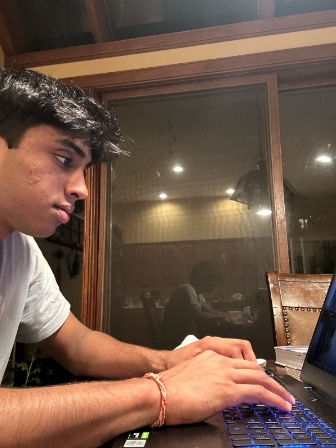They have no country. Nearly 64 years ago, they fled everything they knew to come to a better place for freedom and a better life, but they are still waiting.
The Bihari refugees left India during the creation of Pakistan in 1947 to come to East Pakistan, which later became Bangladesh. Also known as the Stranded Pakistanis, they are a group of stateless people who have not been recognized by the governments of Pakistan and Bangladesh for three decades, despite having migrated from India to join the newly created Pakistan to have a country where they would have more religious freedom.
According to World Focus, a website dedicated to showcasing issues around the world, there are nearly 60 refugee settlement camps in Bangladesh with 300,000 residents, all of whom have no nationality.
The conflict initially arose during the Bangladeshi Civil War in 1971, when East Pakistan refused to be a part of Pakistan and became officially recognized as the independent state Bangladesh. The Biharis had migrated from India but identified themselves with Pakistan, according to a South Asia forum for refugee rights, and were widely persecuted for affiliating with the Western Pakistani government.
After the civil war, the Biharis were left behind and heavily discriminated against despite promises from the Pakistani government that they would eventually be repatriated.
According to the 2011 Minority At Risk (MAR) study conducted by University of Maryland, during the 20 years following Bangladesh’s formation there were numerous protests, marches and riots in Bangladesh in which hundreds of lives were lost.
The Pakistani government promised to repatriate the refugees slowly over time but kept delaying the process and suspended repatriation in 1992 due to the fact that the arrival of Biharis would tilt the demographics in favor of Urdu-speaking people, commonly known as muhajirs, who had left India to join Pakistan.
According to the study, Pakistan’s Interior Minister Naseerullah Babar then stated that Pakistan would not take any refugees, implying that it was due to financial reasons, and appealed to other Muslim nations to take them. The study states that it was proven that financial reasons were not the cause of his refusal to accommodate them.
According to a paper published by Tasmia Persoob, a lecturer at the Department of International Relations at a Dhaka university in Bangladesh, Saudi Arabia helped set up an international national government organization, RAAI, and offered $270 million to help resettle the refugees, along with money from the London-based Resettlement Trust. However, the Pakistani government backed down on resettling the refugees and after President Zia-ul-Haq passed away, the issue was abandoned.
The living conditions of the camps in Bangladesh have been deemed inhumane, and the Pakistani Repatriation Council (PRC) has pushed for greater attention to the matter. In a 2003 letter from the vice chairman of the PRC North America, Iqrar Bokhari, to the Prime Minister of Pakistan, Bokhari stated that the only aid going to the refugee camps was from the Red Cross, and it could only provide for four kilograms of wheat per family per month. He also appealed to the government for neglecting previous promises and plans which had been decided and then suddenly dropped.
Recently, there have been some developments in the Stranded Pakistanis’ case for receiving recognition. According to a May 19, 2008 BBC News article, Bangladesh granted those who were minors at the time of the war and those born after the right to vote. However, they were given no guarantee of their status in refugee camps or any assurance of being settled in Pakistan, and no recognition was given to people who were legal adults at the time of the war.
Despite this right, living conditions in the camps remain what they were.
According to the same article, it is difficult for refugees to get an education and consequently jobs, and now that generations have grown up in these camps there is a gap between the older members who still feel affiliation with Pakistan and younger members who don’t feel as strong an attachment, and resent the country their family left everything for that won’t claim them.
According to a July 2009 The Nation article, only two national government organization’s in Karachi, out of 30,000, are providing relief.
For more information, or to help raise awareness, visit statelesspeopleinbangladesh.net to sign a petition or donate money.







